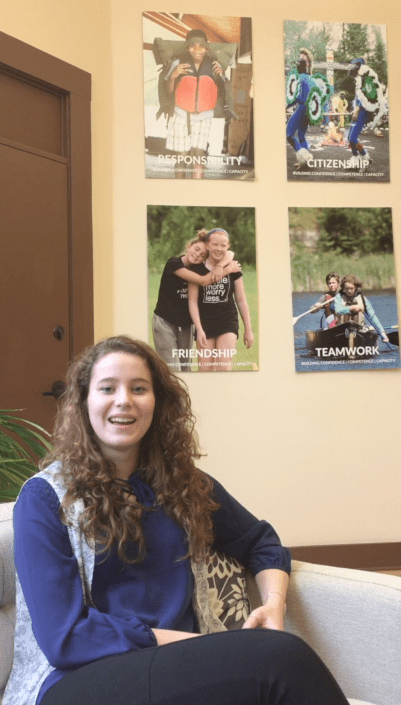
Camp gives kids the chance to immerse themselves in nature and get away from the technology that often occupies them. The benefits are numerous, including personal growth, teamwork, physical exercise, and, of course, friendship. However, there is one tremendous benefit that is often overlooked – Leadership Development.
“Leaders are likely to have had developmental experiences well before reaching mid-management and these early development experiences are important for adulthood,” write psychologists Susan Murphy and Stefanie Johnson, who believe leadership skills can be developed as early as 2 years of age. “We argue that early experiences create the foundation for future leadership development to build on.”
Summer camp is one of these opportunities for early leadership development – developing skills that children will carry throughout their lives. More often than not, children who attend summer camp become people who can lead with flexibility, think creatively on their feet, organize people for a common purpose, and infuse the workplace with positive corporate culture and cheer.
At camp, children learn a number of important leadership skills:
• Conflict Resolution: Campers are “encouraged to respect the differences between people,” says Michael Brandwein, speaker and consultant. “Children are taught responsible and positive ways to resolve conflicts.”
• Teamwork: At camp, children “learn to navigate through group dynamics, to barter, to keep one another happy, to be sensitive and support a friend who’s sad,” says James Spearin, YMCA Senior Vice President of Youth Development. Campers learn how to positively communicate with others and the group living at camp helps campers work with their peers and participate in daily group decision making.
• Problem Solving & Social Development: “At camp, children learn to problem-solve, make social adjustments to new and different people, learn responsibility, and gain new skills to increase their self-esteem,” says Peter Scales, Ph.D., a senior fellow with the Search Institute in Minneapolis. Campers learn how to problem solve through activities like navigating a route by using map and compass or rationing out food and planning menus for a 5-day backpack.
• Positive Feedback & Praise: A large part of leadership is not only motivating a team, but also providing meaningful feedback in a positive way. Positive communication is all about presenting learning opportunities. Even in failure, there is a chance for personal growth and development. It is up to a leader to recognize these opportunities and affect change.
As campers grow older many camps offer a “Camper-in-Leadership Training” (CILT) program, a formalized leadership program designed for 9th and 10th grade high school students. A CILT program provides hands-on leadership opportunities where participants assist younger age camper groups. It is common for a camp’s best staff members to be graduates from CILT programs.
Next summer 12 JACF campers will join CILT programs across our 9 associate camps. One of those campers is Izzy, a high school junior from Kansas who will be participating in the CILT program at Cheley Colorado Camps as a 5th summer JACF camper. Watch the video below to hear how camp has provided Izzy with opportunities to become a leader today and in the future.
Summer camp experiences build the foundations of strong children who can lead others, show empathy, navigate through difficult group dynamics, value the differences in everyone, and give of oneself for the benefit of others. These skills learned during adolescence continue to develop and eventually result in adults with strong character and leadership.
